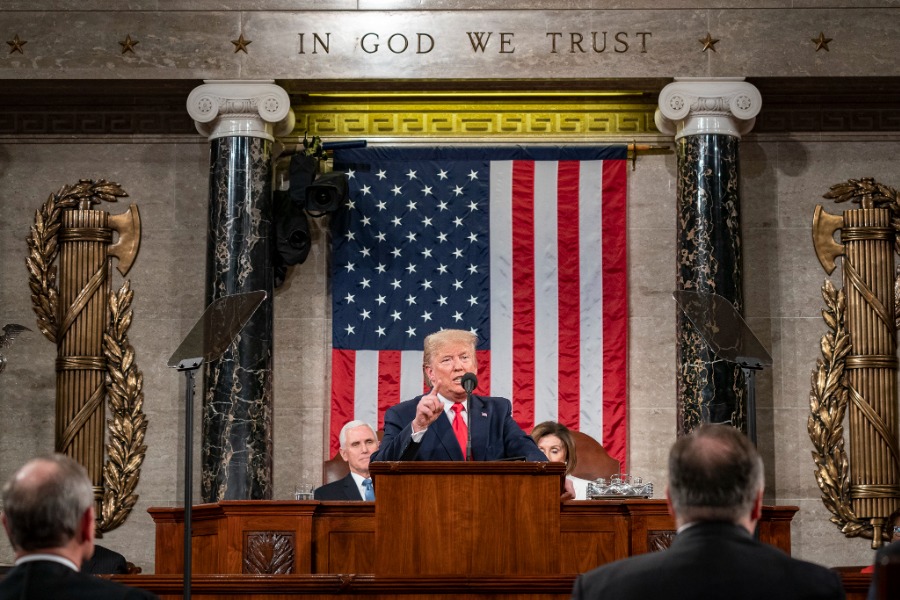Do Commentators and Congress Treat All of the WPR as Law: The 60-Day Clock, Again
First, my thanks to Ben, Jack, and Bobby for permitting me to become an affiliated blogger on this terrific site.
We are likely soon to get a test of how seriously Congress takes all of the War Powers Resolution (WPR). In particular, is Congress prepared to insist that the 60-day clock provision -- thought to be the key to the WPR when enacted -- be enforced?
Published by The Lawfare Institute
in Cooperation With

First, my thanks to Ben, Jack, and Bobby for permitting me to become an affiliated blogger on this terrific site.
We are likely soon to get a test of how seriously Congress takes all of the War Powers Resolution (WPR). In particular, is Congress prepared to insist that the 60-day clock provision -- thought to be the key to the WPR when enacted -- be enforced? And if not, what will that tell us about the WPR itself?
For members of Congress and others who believe that the current Libya operation constitutes “hostilities” under the WPR, the fact that Congress now appears gridlocked over whether to authorize, or terminate, or reduce in scope, the Libya operation has settled the legal question of what, under the WPR, should happen next. Even if the Senate votes to authorize the operation, Congress as a whole will not do so. Under the WPR, that means the President is required to withdraw, now, from those portions of the Libya operation that constitute “hostilities.” If we take what appears to be the implicit definition in the House resolutions of “hostilities,” that would mean withdrawing from offensive operations, including bombing operations from drones as well as manned flights (If one accepts Jack’s analysis here, the matter is not even as simple as that; Jack argues that U.S. participation in NATO operations that themselves constitute “hostilities” triggers the domestic obligation for the President to obtain congressional authorization after 60 days. So even if the U.S. only provides communications, intelligence, logistical, and similar support, the U.S. would also have to withdraw those forms of support, absent congressional authorization).
But let’s focus on just the simple question of withdrawing from the offensive uses of military force through bombing operations. Even though a majority of the current Congress does not appear to support withdrawing from those operations (indeed, it seems a majority in neither chamber of Congress supports doing so), the terms of the WPR 60-day clock – which by the way, expired around May 20th – require terminating those operations, if one believes they constitute “hostilities” under the WPR. Hence, the oddity of the 60-day clock structure that I noted at the early stage of this debate. Here’s the relevant textual provision from Sec. 5(b):
(b) Within sixty calendar days after a report is submitted or is required to be submitted pursuant to section 4(a)(1), whichever is earlier, the President shall terminate any use of United States Armed Forces with respect to which such report was submitted (or required to be submitted), unless the Congress (1) has declared war or has enacted a specific authorization for such use of United States Armed Forces, (2) has extended by law such sixty-day period, or (3) is physically unable to meet as a result of an armed attack upon the United States. Such sixty-day period shall be extended for not more than an additional thirty days if the President determines and certifies to the Congress in writing that unavoidable military necessity respecting the safety of United States Armed Forces requires the continued use of such armed forces in the course of bringing about a prompt removal of such forces.Perhaps the White House will voluntarily terminate those operations soon in any event. Of course, the White House position will not be that such termination is required, but there might be legitimate military reasons those operations are no longer needed, and it would, in any event, reduce the level of political conflict with Congress to do so. But the White House might very well not pull out from those operations. From news accounts, it appears the White House was not keen to be engaged in these kinds of operations after the transfer to NATO, and became engaged in these ways and at these levels only because our NATO allies insisted that these U.S. offensive operations were necessary to make the NATO operation effective. From an operational perspective, a continued U.S. role in these forms might remain necessary, in the judgment of military figures, to the success of the NATO operation. These issues have been relevant since May 20th. If the U.S. continues bombing operations going forward, the question is whether those, in Congress and outside, who have been strongly committed to the view that these operations are “hostilities” are going to be equally committed and vociferous about the view that these operations are therefore legally required to end now (or were required to have ended on May 20th). My hunch, though, is that this will not be the case, particularly within Congress. To be sure, there will be some members who will express that view. But I doubt anything like majorities in either chamber will insist that the operations cease, because the 60-day clock of the WPR requires it. Indeed, majorities in either chamber do not seem prepared to vote to do that now on the merits; are they going to insist instead for procedural reasons – compliance with the 60-day clock – that it be done? That seems unlikely. If that’s the way events develop in the coming days, what does that tell us about whether members of Congress, or others, believe about the wisdom of the 60-day clock? Again, those who firmly believe the WPR requires authorization for Libya, and that the operation as currently structured constitutes “hostilities,” because the rule of law – compliance with the WPR– requires those results, should be of the view that the rule of law similarly requires termination of those hostilities. In fact, the 60-day clock provision is probably one of the most straightforward provisions to interpret in the WPR. If commentators or members of Congress are not prepared to insist on that conclusion with equal vigor, I would construe that as doubt about whether the 60-day clock provision is sound policy, even though it is current law. And if that turns out to be the case, then it might suggest at some point down the road Congress ought to consider whether some other structural mechanism for enforcing the WPR would make more sense. Indeed, for those who believe the "law" of the WPR, which courts do not enforce, is determined by the political practices over time of the two political branches, what would that say about whether the 60-day clock provision is, in this sense, actually law?
Professor Pildes is the Sudler Family Professor of Constitutional Law and Co-Faculty Director for the Program on Law and Security at NYU School of Law. His scholarship focuses on legal issues concerning the structure of democratic institutions and politics, separation of powers, administrative law, and national-security law. A clerk to Justice Thurgood Marshall at the United States Supreme Court, Professor Pildes has been named a member of the American Academy of Arts and Sciences, a Guggenheim Fellow, and a Carnegie Scholar.



.jpg?sfvrsn=6cdd11de_5)

